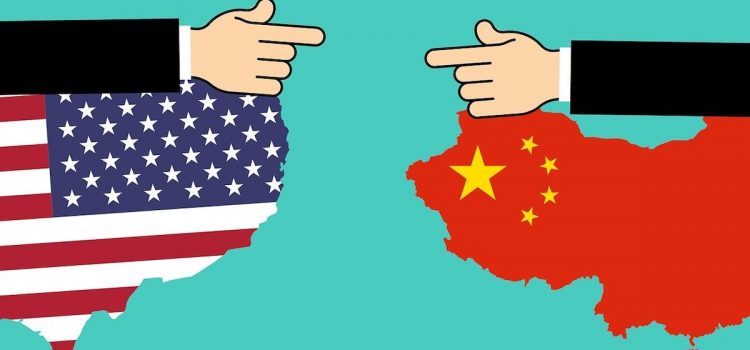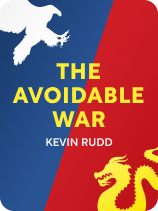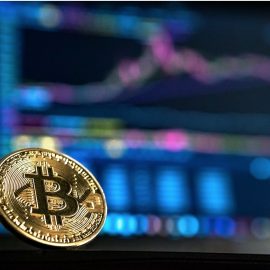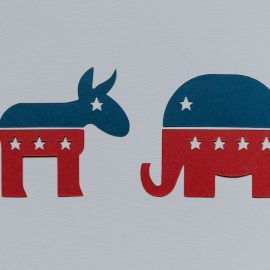

This article is an excerpt from the Shortform book guide to "The Avoidable War" by Kevin Rudd. Shortform has the world's best summaries and analyses of books you should be reading.
Like this article? Sign up for a free trial here.
How do the US and China view each other? Why have US-China relations soured in recent years?
Hostility between the US and China has been growing for over a decade, eroding the wary but pragmatic relationship of years past. Australian diplomat and politician Kevin Rudd argues that this tenuous relationship is unraveling, and he provides an analysis of where relations stand now.
Read on to understand current US-China relations from America’s and China’s perspective.
The Current Status of US-China Relations
Rudd suggests that Xi’s strategies for bolstering China’s domestic and international power have caused increasing hostility between the US and China. He explains that, overall, current US-China relations are tense, with each side viewing the other as an existential threat and neither side believing the public stances of the opposing government.
Rudd writes that the last decade has been marked by several events triggering a downturn in US-China relations: increased cyberattacks by both sides, China’s heightened military presence in the South China Sea, former President Donald Trump’s trade war with China in 2018-2019, anti-China rhetoric by the US during the Covid-19 pandemic, and the US’s high-level diplomatic meetings in Taiwan.
Rudd says these events and the loss of trust that resulted have hindered the countries’ ability to cooperate even on a practical level, such as by maintaining beneficial trade relations. We’ll describe Rudd’s summary of the US and China’s different perspectives.
(Shortform note: This tendency for both countries to outright deny the claims of the other has seemingly increased in recent years. For example, each side has accused the other of cyberattacks while denying their own alleged involvement in cyberattacks. Similarly, each has accused the other of coercion, intimidation, and disrupting peace in global politics.)
The American Perspective
Rudd explains that economically, any unwillingness to participate in free market capitalism is a direct threat to the US’s goal of establishing a global order that aligns with its capitalist economic interests. This includes economic policies such as tariffs and China’s largely state-controlled economy. Similarly, Rudd writes that the economic and military advancement of any nation with Marxist-Leninist ideology challenges the supremacy of the US model of a liberal-style, capitalist democracy.
(Shortform note: Some experts say that this dynamic, in which both countries are vying for global influence using their distinct economic and political models, harkens to the Cold War era when the US and the Soviet Union both strived for geopolitical supremacy. In addition, some political analysts argue that with Russia and China’s strengthening alliance, particularly given China’s potential to influence the war in Ukraine, the China and Russia alliance poses a greater threat to the US power than the Soviet Union did before.)
According to Rudd, Trump in particular was outraged by the imbalance in trade (in favor of China) between the US and China, considering it harmful to the US’s reputation as well as its economy. This sparked a two-year contentious trade war in which the two countries continued to retaliate against each other economically. (Shortform note: Economists suggest that Trump’s trade war was ultimately unsuccessful as it had a negative impact on American business, employment, and wages. In addition, the trade war had little impact on Chinese exports and there were no indications that US manufacturing companies left China.)
Rudd says that the Trump and Biden administrations also criticized China for its authoritarian oppression of freedom of religion, speech, and press as well as its human rights abuses within China. For example, one of the US’s major criticisms is the ongoing genocide and mass imprisonment of the Muslim Uyghur ethnic minority in the Xinjiang region of China. Rudd writes that Xi began these anti-Uyghur policies in response to two Uyghur domestic terrorist attacks in 2013 and 2014.
(Shortform note: In addition to the US government’s public criticisms of China regarding human rights abuses, the US also exerted pressure on China by passing the Uyghur Forced Labor Prevention Act in 2021. The law banned the import of products from the Xinjiang region where forced labor is used to make products. In 2022 the UN Human Rights Office published an assessment of the situation in Xinjiang saying that China has committed crimes against humanity. The report recommended that the Chinese government take immediate action to reverse its policies and investigate the allegations of human rights abuses.)
The US has also been angered by Chinese cyberattacks on private companies. (Shortform note: Examples of cyberattacks include a 2021 incident in which Chinese hackers were accused of accessing the Microsoft Exchange servers, giving China access to many businesses’ and organizations’ private information and intellectual property. There’s also growing concern in the US government that China could use cyberattacks to target US political parties and interfere with elections.)
Lastly, the US claims that China’s naval activities in the Pacific infringe on the rights of the independent nations of Southeast Asia. (Shortform note: A ruling by the UN determined that China’s naval activity in the South China Sea violates historic agreements that entitle other nations—including the Philippines, Malaysia, Vietnam, and Brunei—to free movement in the South China Sea.)
The Chinese Perspective
Rudd explains that economically, China believes it has the right to acquire influence and political clout abroad through investment and trade, just as the US has done for decades. China would argue that its development model in particular is superior to the US’s because it doesn’t come with conditions about how the beneficiary’s government has to operate.
For example, loans through the US and the International Monetary Fund often require the receiving government to institute a free market (without the government controlling commerce) and convert to a Western-style democratic government. In contrast, Rudd explains, China seeks mutually beneficial economic cooperation without forcing its ideology on developing countries.
(Shortform note: The counterargument to this point (as explained in the previous section) is that BRI investment does come with implicit strings attached—support for China in international governing bodies such as the UN. However, some research suggests that so far, the BRI has not significantly increased China’s “soft power” in the form of increased support in the international community. Another criticism of China’s development model is its lack of transparency, making it difficult for outside institutions to measure the impact of China’s loans and investments.)
In addition, China resents US presidents’ recent actions such as Trump’s trade war, which caused China economic distress due to policies like high tariffs on Chinese goods imported to the US. (Shortform note: Many economic analyses suggest that the trade war had a negative impact on the US, while for China, it mostly directed trade away from the US and toward other countries such as Mexico and Japan.)
Rudd contends that China also views many of the US’s actions through the lens of race, citing Trump’s use of the term “China virus” during the Covid-19 pandemic. (Shortform note: Evidence suggests that the term “China virus” not only harmed relations with China but also sparked an increase in hate crimes against Asian Americans and Pacific Islanders in the US.)
Rudd points out that, although the administration under President Joe Biden has tamped down anti-China rhetoric, it hasn’t reversed many of the Trump-era sanctions on China (including tariffs and visa restrictions) leaving this point of tension with China unresolved.
(Shortform note: In addition to leaving previous sanctions in place, in 2023 the Biden administration issued new sanctions on China for activities such as selling surveillance technology to Iran. The Biden administration also revived a Trump executive order (in a new legislative form) by threatening to ban the partially Chinese-owned app TikTok if the Chinese owners don’t sell their shares to an American-owned company. The US claims that any Chinese ownership of TikTok poses a security risk to American users’ data and could give China the ability to spread propaganda.)
Politically, China would argue that the US government has always exerted its will through violent and coercive means, and it has also committed human rights violations against minorities within its own borders. Therefore, Rudd explains, China would say that American criticisms of China are hypocritical.
(Shortform note: Both the US and Chinese governments have published reports on the human rights abuses in each others’ countries; however, one analyst suggests that public shaming of another country’s human rights abuses may fail to stimulate change because it activates an “us versus them” mentality in the citizens of the accused country, making them more supportive of their government. Given the existing hostility between the US and China, this suggests that each country’s criticisms may exacerbate the rivalry rather than encourage positive change. On the other hand, when domestic journalists and human rights organizations raise awareness of human rights issues, it can help rally support for activists around this cause.)

———End of Preview———
Like what you just read? Read the rest of the world's best book summary and analysis of Kevin Rudd's "The Avoidable War" at Shortform.
Here's what you'll find in our full The Avoidable War summary:
- The complex factors contributing to hostility between the US and China
- How a military conflict between the US and China can be avoided
- The huge toll a US-China war would take on global stability






